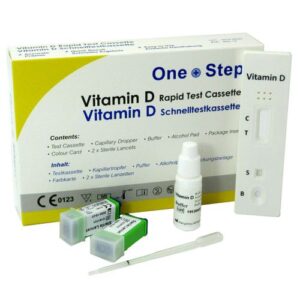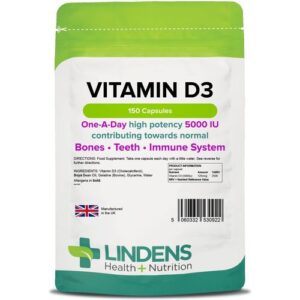A study conducted at the University of Newcastle in 2010 revealed that approximately 16% of of the British population is severely deficient in vitamin D during the winter, and half the population has some degree of deficiency. The research shows the problem is much more prevalent in the North and among those of Asian and African descent, as those with darker skin are less able to absorb sunlight and produce the vitamin.
Other factors affecting vitamin D deficiency are working indoors, children playing indoor on electronics instead of getting outside, and consistent sunscreen use.
Sunscreen and Vitamin D
While sunscreen use is important, especially in those with pale complexions, to prevent burning and to protect against skin cancer, sunscreen prevents the absorption of UV rays needed to produce vitamin D. It has been suggested that those who use sunscreen consistently should consider taking Vitamin D3 supplements.
Vitamin D helps the body absorb calcium from food and is vital to bone growth. Vitamin D deficiency can contribute to brittle, misshapen, or thin bones and can lead to children developing rickets and adults developing osteomalacia, which is a softening of the bones, or other conditions. Lack of vitamin D has also been linked to the onset of Parkinson’s disease in later life.
While sun exposure is one of the best sources of vitamin D, it can also be found in foods such as liver, egg yolk, and oily fish like salmon and tuna. A number of supplements are also available, both over the counter and with a prescription. Many supplements also contain calcium, as vitamin D deficiency causes the body to not absorb and use calcium normally. Ultra Vitamin D from Vitabiotics is a popular choice with many of our customers.
Taking A Vitamin D Deficiency Test

The best way to determine whether you are getting enough vitamin D is to visit your healthcare provider for a vitamin D test. Or you can test at home. At Zoom Health we now offer a home testing kit for Vitamin D Deficiency. From a small sample of blood, this easy to use home test. Within ten minutes the test will confirm if you are deficient in Vitamin D.
If you are deficient in vitamin D, or you want to ensure you get enough over the winter, consider incorporating more vitamin D rich foods into your diet, getting out in the sun as much as weather allows, or taking a daily vitamin D3 supplement.
Here is some additional content that could be inserted into the article on avoiding vitamin D deficiency:
Preventing Vitamin D Deficiency in Children
Ensuring sufficient vitamin D levels in children is especially important for proper bone development and growth. Unfortunately, many kids today aren’t getting enough of this crucial nutrient. With more time spent indoors on electronic devices rather than playing outside, vitamin D deficiency has become a growing concern among paediatricians.
As a parent, you can help prevent this by making nutritious vitamin D sources a regular part of your child’s diet. Fatty fish like salmon, tuna, and sardines are excellent options. Egg yolks also provide vitamin D. If your child is a picky eater, look for vitamin D fortified foods like milk, cereals, yogurts, and juices.
Getting safe sun exposure is also key since the body produces vitamin D through the skin’s absorption of UVB rays. Just 10-30 minutes outdoors a few times a week during peak sun hours can do the trick, depending on your location and skin tone. For infants under 6 months, you’ll want to avoid direct sunlight and stick to vitamin D supplementation.
While severe deficiency is uncommon in developed countries, even mild vitamin D insufficiency can impact a child’s health over time. Work with your paediatrician to have your child’s levels tested if you have any concerns. With some simple diet and lifestyle adjustments, it’s easy to ensure your little one is getting an adequate vitamin D supply.
High Strength Vitamin D3 Capsules from Zoom Health
Lindens is one of the leading suppliers of vitamins and supplements in the UK. Their products are manufactured domestically and meet the highest quality standards, adhering to ISO 9001 certification and Investors in People standards. This is why Zoom Health has partnered with Lindens to offer their supplements to our customers.
Vitamin D3 5000IU Capsules from Lindens provide an ultra-potent 2500% of the Nutrient Reference Value (NRV) of Vitamin D3 in a convenient once-daily capsule. Each capsule contains 125mcg (5000IU) of Vitamin D3.
The product comes in a 150 capsule pack. When taking one capsule per day as directed, this pack will last for approximately 5 months.
Photo “Sunshine” by Anthony Cunningham for Zoom Health
Zoom Health is a leading UK supplier of Home Health Tests and Earplugs






